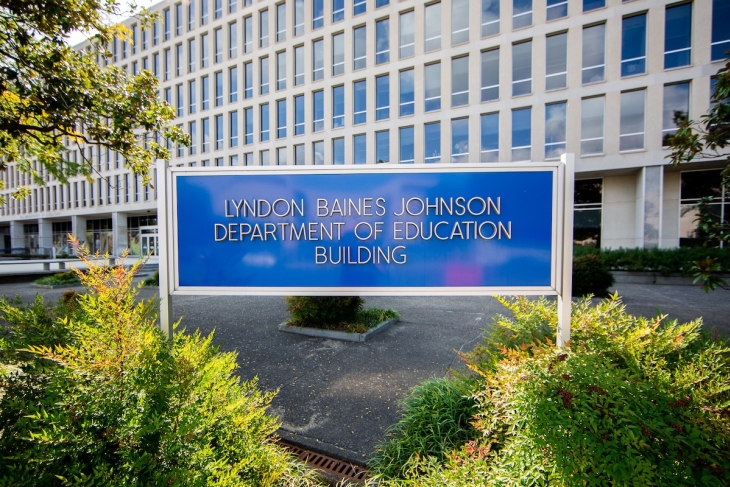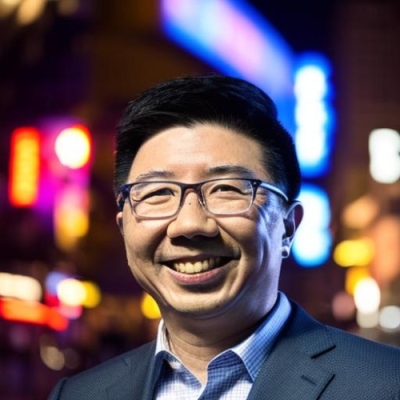President-elect Donald Trump is about to return to Washington with a ragtag coalition, united in their rejection of the status quo. Yet this shared opposition has also led to a rash of infighting over a range of policy issues. From the recent dustup on H-1B visas to Steve Bannon attacking Elon Musk, these faults lines reflect, for want of a better term, a “populist” and “libertarian” faction within its ranks. It may not be as obvious yet on education policy, but it’s only a matter of time before this MAGA-vs.-MAGA strife reaches schooling.
Indeed, the fundamental tension on education policy within Trump’s coalition is whether to devolve power from Washington or weaponize the U.S. Department of Education as part of the culture war. As my colleague Checker Finn recently observed, this disagreement can be seen as a tug-of-war between “centralizers” and “decentralizers”:
Centralizers are often found in Democratic administrations—consider the strings President Barack Obama attached to Race to the Top as well as sundry Biden-era regulations involving gender and school discipline. But the centralizing impulse also runs deeper than you might think among conservatives, sometimes—this may be counter-intuitive—in the form of mandating school choice and parental rights.
That’s right on point. Opposition to “woke” ideology drives much of the ascendant “parental rights” movement, with proponents arguing that progressive ideas about race and gender have come to dominate public schools. They see parental rights as a means to challenge and, where possible, to remove such content. Conflict arises over how far these rights should extend. Some support a more assertive federal role in reviewing and prohibiting controversial materials, while others argue for local decision-making, even if it leads to progressive policies in some districts.
This tension applies doubly to school choice. Few issues unify conservatives as much as expanding alternatives to traditional public schools. Yet even here, the coalition reveals its cracks. Should we have a federal program so that blue states like New York and California have choice—as AFC, EdChoice, and others believe? Or would that be overstepping Uncle Sam’s role, and risking that future administrations will load up such a program with poison pills—like the Cato Institute has repeatedly voiced concerns about?
These questions coexist uneasily. Red-hued rural communities across the country have long resisted vouchers, for example, because many lack viable alternatives to public schools. For decades, Texas has been at the heart of this internecine feud (though things could actually change this year). Similarly, debates arise over the extent to which public funds should subsidize religious education, with some warning that public funding for private schools might compromise religious freedom or incentivize government overreach. This is why, for instance, homeschoolers are reflexively wary of anything that even smells of government encroachment. It also partially explains how last fall’s school-choice ballot initiative in my home state of Colorado went down in flames.
And, of course, there are the divergent rationales in Trumpworld behind the push to abolish the Department of Education. For some, it represents bureaucratic inefficiency—a bloated federal entity that wields outsized influence for a relatively modest outlay. For others, the department is a symbol of federal overreach, and an enemy of state sovereignty, local control, and parental freedom. Then there’s a third faction, one that views the agency through a cultural lens. For this group, the department isn’t just an inefficient bureaucracy—it’s a sinister vehicle for promoting progressive, “woke” policies that undermine traditional American values.
These motivations may align under the vague slogan “abolish the Department,” but they quickly fall apart when specifics come into play. For example, should the feds be the ones to put a stop to “transgender insanity” or would this be best left to the purview of states? Should the Department of Education condition the receipt of federal grants on the adoption of certain curricula in reading, history, civics, or what have you? What about withholding or recapturing dollars when states or localities venture into what MAGA diehards see as dangerous territory?
As a thought experiment, imagine Trump reversing course—much like his shift on TikTok—and, instead of eliminating the agency, advocated for expanding its reach, augmenting its powers, and unapologetically weaponizing it as a political cudgel. I’d bet dollars to donuts that his followers would quickly fall in line behind him. This is what happens when you define a party by loyalty to a personality rather than to a set of principled ideas.
This raises a larger question: What happens when Trump is history, whether via term limits or actuarial tables? With inauguration day around the corner, the outlook is murky. What is clear, however, is that the combination of internal discord and today’s culture-war driven version of school reform may eventually test the limits of the coalition’s unity and its ability to support a coherent education agenda.




